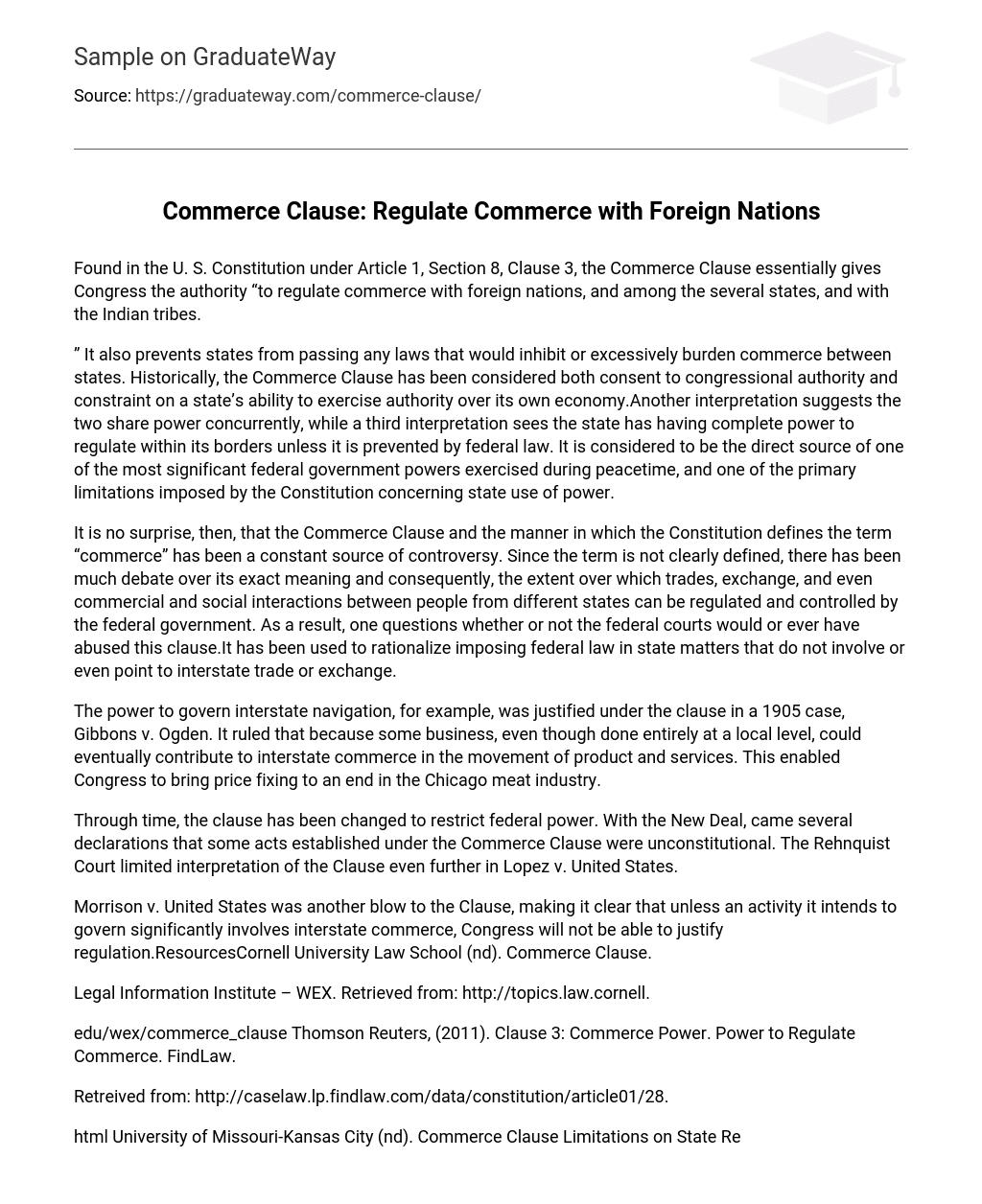Found in the U. S. Constitution under Article 1, Section 8, Clause 3, the Commerce Clause essentially gives Congress the authority “to regulate commerce with foreign nations, and among the several states, and with the Indian tribes.
” It also prevents states from passing any laws that would inhibit or excessively burden commerce between states. Historically, the Commerce Clause has been considered both consent to congressional authority and constraint on a state’s ability to exercise authority over its own economy.Another interpretation suggests the two share power concurrently, while a third interpretation sees the state has having complete power to regulate within its borders unless it is prevented by federal law. It is considered to be the direct source of one of the most significant federal government powers exercised during peacetime, and one of the primary limitations imposed by the Constitution concerning state use of power.
It is no surprise, then, that the Commerce Clause and the manner in which the Constitution defines the term “commerce” has been a constant source of controversy. Since the term is not clearly defined, there has been much debate over its exact meaning and consequently, the extent over which trades, exchange, and even commercial and social interactions between people from different states can be regulated and controlled by the federal government. As a result, one questions whether or not the federal courts would or ever have abused this clause.It has been used to rationalize imposing federal law in state matters that do not involve or even point to interstate trade or exchange.
The power to govern interstate navigation, for example, was justified under the clause in a 1905 case, Gibbons v. Ogden. It ruled that because some business, even though done entirely at a local level, could eventually contribute to interstate commerce in the movement of product and services. This enabled Congress to bring price fixing to an end in the Chicago meat industry.
Through time, the clause has been changed to restrict federal power. With the New Deal, came several declarations that some acts established under the Commerce Clause were unconstitutional. The Rehnquist Court limited interpretation of the Clause even further in Lopez v. United States.
Morrison v. United States was another blow to the Clause, making it clear that unless an activity it intends to govern significantly involves interstate commerce, Congress will not be able to justify regulation.ResourcesCornell University Law School (nd). Commerce Clause.
Legal Information Institute – WEX. Retrieved from: http://topics.law.cornell.
edu/wex/commerce_clause Thomson Reuters, (2011). Clause 3: Commerce Power. Power to Regulate Commerce. FindLaw.
Retreived from: http://caselaw.lp.findlaw.com/data/constitution/article01/28.
html University of Missouri-Kansas City (nd). Commerce Clause Limitations on State Regulation. Exploring Constitutional Conflicts website. Retrieved from: http://law2.umkc.edu/faculty/projects/ftrials/conlaw/statecommerce.htm





